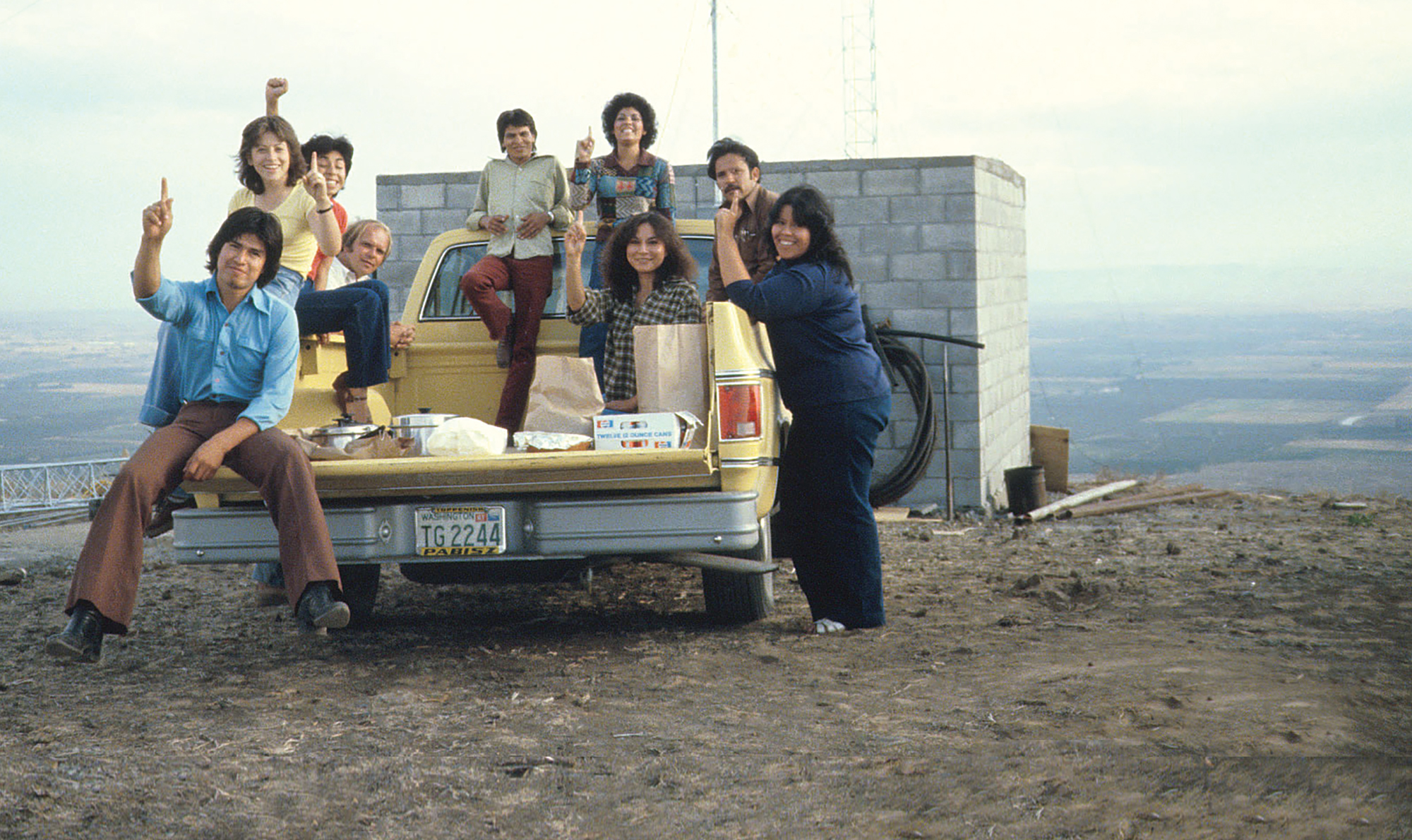Radio Cadena—the name given to the project before the designated call letters of KDNA were established in 1979—first started in Lynden, Washington, in 1975 where radio producers Julio César Guerrero and Daniel Robleski (often shortened to Dan Roble) educated farmworker youth in radio production skills—a program sponsored by local community organization Northwest Rural Opportunities (NRO) headed by Ricardo García. Along with the other cofounders, KDNA’s future station manager, Rosa Ramón—who also worked for NRO—recognized early on that access to radio broadcasting would have a significant impact on Mexican migrants and their families, especially women and farmworker youth, navigating new geographies and sociopolitical structures in the area. Soon the training program in Lynden would migrate to Seattle before settling in Granger, where KDNA established its own radio station studio in NRO’s well-known three-story brick building with a former life of its own. Prior to the brick-and-mortar station being established in Granger, Radio Cadena was based in Seattle and transmitted Spanish-language programming with the help of community radio station KRAB FM. Indeed, Radio Cadena’s founders and volunteers tapped into institutional resources and already existing activist networks throughout the Pacific Northwest to successfully launch KDNA 91.9 FM.
The Mount St. Helens incident is just one early example of how Radio Cadena, including its staff and volunteers, served Mexican American and Chicano communities establishing roots in the Pacific Northwest. From educating farmworkers about the harmful effects of pesticides to empowering women to leave situations of domestic violence, KDNA quickly became a tool for community building, advocacy, and entertainment that was especially leveraged by the women who led it. For many of KDNA’s female farmworkers-turned-broadcasters, developing skills in community radio production led to an awakening of personal agency and the brokering of new social relations both inside and outside the recording studio.
The station’s culturally relevant broadcasting, job training in radio production, and maintenance of Mexican and Tejana/o cultural traditions vis-à-vis radio programming and community events all worked to uplift farmworkers and their families, particularly women. The development of Spanish language radio in the Yakima Valley was a tool for community building facilitated by the rise of community-based public broadcasting across the country, alongside Chicano movement activity in the region.
… Staged alongside the Chicano movement in the Pacific Northwest, KDNA emerged as the leading advocate for farmworkers’ rights in the region, especially by encouraging “workers to demand minimum wage, toilets in the field and water to wash pesticides from their hands before lunch. KDNA demands better conditions for migrant workers while keeping their culture alive.” Radio Cadena set out to be a station that provided news, information, and entertainment to Spanish-speaking listeners, while calling on Mexican farmworkers to build community often through direct participation with the radio station. Perhaps it was KDNA’s unique and targeted outreach to farmworkers, often employed under terrible conditions, that worried growers in the region. For example, orchard owners “bombarded the Federal Communications Commission with claims the station was sparking worker rebellion,” as Ricardo García, cofounder and KDNA’s second and longest-serving station manager, recalls. “They realized now that we’re not really inciting or promoting restlessness amongst farmworkers. What we’re all about is information and education.”
